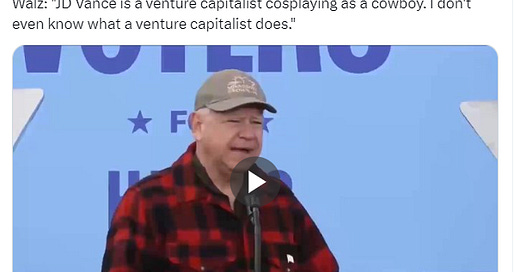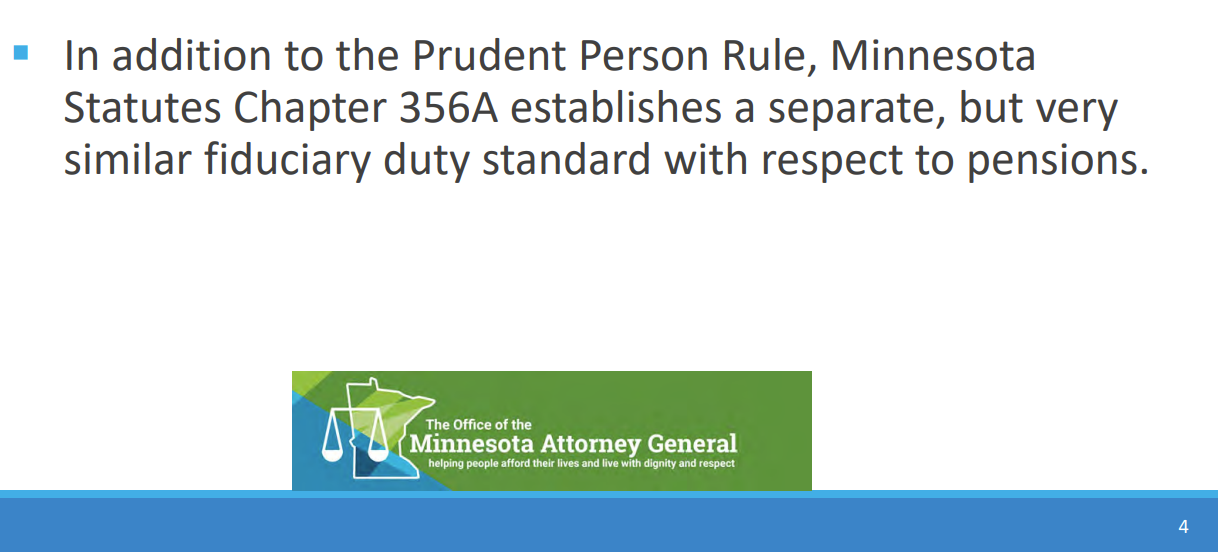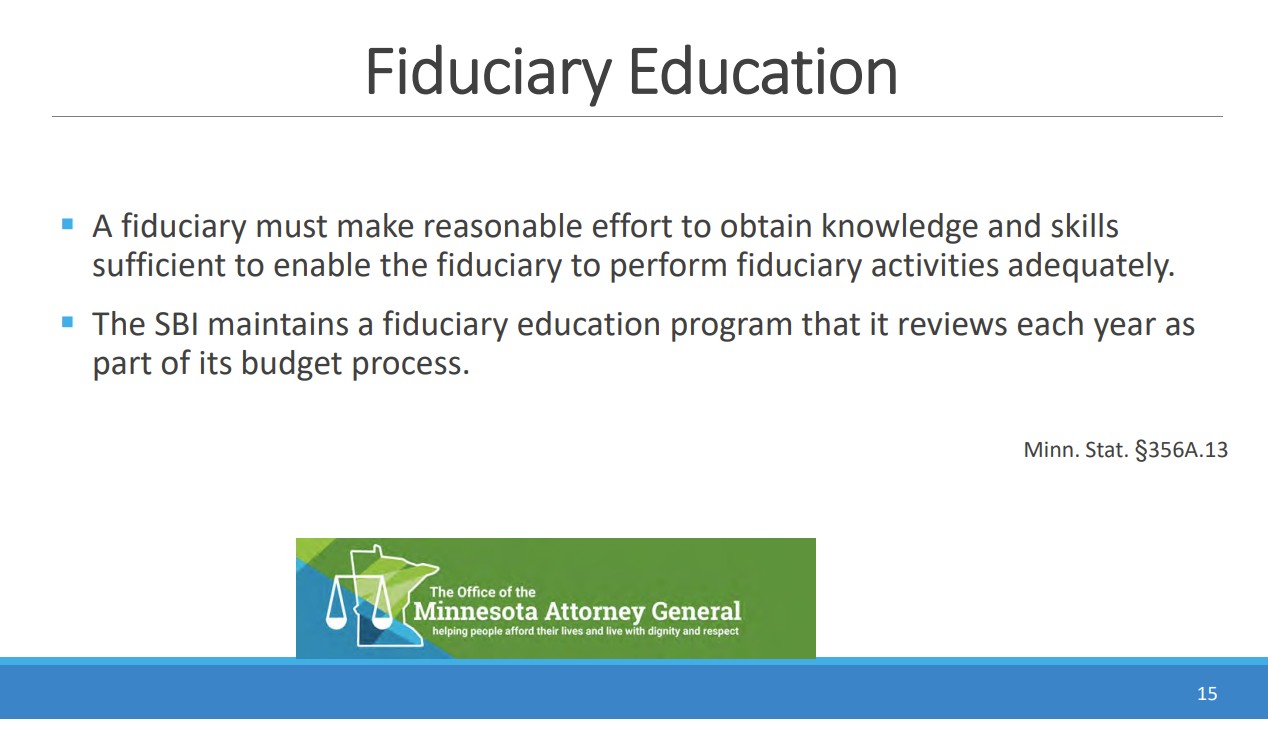Minnesota Teachers Pensions Update: Does Walz Know ANYTHING About the Pensions' Investments?
I am very skeptical that Walz knows much, if anything, about the investments that go into the pensions that he purportedly oversees
I was working on this piece a few weeks ago when I found Stu had died, and let me get back to it. Especially since Tim Walz thought it smart to do this:
We’re all referring to this act:
(By the way, that’s Sgt. Schulz, not Col. Klink.)
This is almost certainly an act (similar to pretending to being a serious hunter, while not knowing how to load or hold a shotgun).
Tim Walz has been the chair of the Minnesota State Board of Investments, simply due to being the governor of Minnesota. The Minnesota SBI oversees such things as the investments of the Minnesota pension funds.
Now, given Walz’s background, I can very well believe he has little understanding of investments of any kind. But that then calls into question exactly how good of an oversight he can provide as chair of the SBI. I will return to that question later in the post.
But first, I want to jump over to Edward Siedle.
Edward Siedle’s Updates on Minnesota Pension Investments
Here are multiple posts from Edward Siedle after his most recent report on pension funds:
These three all relate to the report Edward Siedle released on September 27, in which he looked into the investments behind the Minnesota Teachers pension fund:
Minnesota Mirage: Sleight of Hand
An excerpt: [I added emphasis]
Yesterday, immediately before the anticipated publication of this report, the State Board of Investments finally released a few of the documents we requested 6 months ago—in an apparent attempt to delay the damning report until after the Vice Presidential debate next week and national Presidential election in November. It seems that since the Chairman of the Board of the SBI was Governor Walz, who is now the Democratic Vice Presidential candidate, there is some concern pension mismanagement or wrongdoing under his watch could undermine confidence in his leadership skills—at least with respect to investment matters. Walz recently disclosed, while responsible for overseeing a $140-plus billion fund established to provide retirement security for tens of thousands of state workers, he has never owned a stock or a bond.
Any analysis of documents withheld from public scrutiny prior to September 25th—the date of the report—may be provided in subsequent reports. Minnesota educators see no need for further delay resulting from months of inexcusable state efforts to thwart public scrutiny.
As usual, Siedle’s focus is on the asset side of the pensions, as that is his area of expertise.
He has multiple critiques in his full report (note: it will download a PDF), such as lack of transparency in the investments, hidden fees, changing benchmarks, and other aspects that may seem untoward to key stakeholders in the pension plan. Go to Siedle’s substack to read further into his investigations.
But I want to talk about the bolded bit.
Ignorance when You’re in Charge is Not a Good Look
Walz, as governor of Minnesota, chairs the SBI (state board of investments).
He does not have much in the way of investments knowledge, as far as we can tell and here he has been crowing about his ignorance of late of “esoteric” areas of investment like venture capital…
…and the Minnesota pension funds have been increasing their exposure to alternative assets:
Minnesota TRA actually has a modest allocation compared to its peers, but even so, joking that you’re an idiot about investments when you’re supposed to be in charge of pension funds is not a good look.
About Public Pension Oversight
I was checking some background information on the Minnesota SBI by looking at old board meeting materials. While looking for asset information, various board informational/educational sessions caught my eye.
Here is one from January 2020, first with a comment from the minutes:
Hmmm.
Let us look at the opening of the educational session about the fiduciary duty of the board members, which included Gov. Walz:
Obviously, I am not going to capture every slide in the presentation. You can get the board materials yourself and see the whole thing if you desire.
There’s nothing special about the presentation — it’s pretty standard.
But let’s look at this:
Specifically, look at the “Duty of Prudence” box, and what this requires.
You need to have a certain amount of knowledge to be a fiduciary.
I will be blunt: several people are on public pension boards with questionable abilities to fulfill their fiduciary duties.
Some get on these boards due to their broader political office (such as governor, state treasurer, attorney general, etc.) Some of these offices attract politicians of ability and knowledge, and others do not.
Some get on the boards via their public employee union connections, and while they have great interest in safeguarding their fellow employee/retiree benefits, they may not have enough knowledge to provide good oversight. (cf Ohio)
While those who are inept and are elected/appointed to the board can resign, I do wonder about those, like Walz, who are on boards ex officio. If you’re the governor and cannot be on the SBI because you’re a dumbass… I mean, that’s something of a bind.
One could dress it up in prettier language: “I cannot fulfill this particular role in the SBI, thus must resign as chair…” except it’s a duty of the governor. Hmmm.
Prior Posts on Minnesota Teachers
7 Sept 2024: Minnesota Hodge-Podge: Quick Bits from Others
13 Aug 2024: Tim Walz and Public Pensions: What's the Risk?
8 Apr 2024: Public Pension Problems -- Proposed Solutions, But Will They Fix Anything?
27 Mar 2024: Around the Pension-o-Sphere, 27 Mar 2024: Illinois, Minnesota, and Teamsters Payback?!













